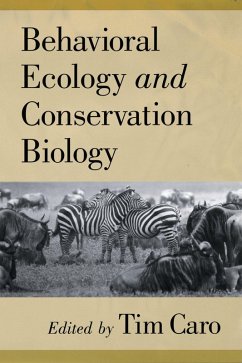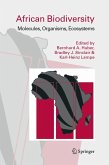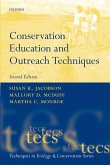In just the last few years, behavioral ecologists have begun to address issues in conservation biology. This volume is the first attempt to link these disciplines formally. Here leading researchers explore current topics in conservation biology and discuss how behavioral ecology can contribute to a greater understanding of conservation problems and conservation intervention programs. In each chapter, the authors identify a conservation issue, review the ways it has been addressed, review behavioral ecological data related to it, including their own, evaluate the strengths and weaknesses of the behavioral ecological approach, and put forward specific conservation recommendations. The chapters juxtapose different studies on a wide variety of taxonomic groups. A number of common themes emerge, including the ways in which animal mating systems affect population persistence, the roles of dispersal and inbreeding avoidance for topics such as reserve design and effective population size, the key role of humans in conservation issues, and the importance of baseline data for conservation monitoring and modeling attempts. Each chapter sheds new light on conservation problems, generates innovative avenues of interdisciplinary research, and shows how conservation-minded behavioral ecologists can apply their expertise to some of the most important questions we face today.
Dieser Download kann aus rechtlichen Gründen nur mit Rechnungsadresse in A, B, BG, CY, CZ, D, DK, EW, E, FIN, F, GR, HR, H, IRL, I, LT, L, LR, M, NL, PL, P, R, S, SLO, SK ausgeliefert werden.









